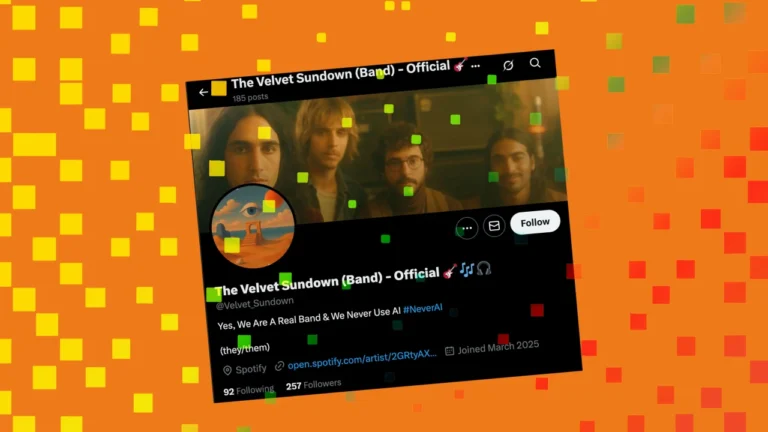
Michael M. Santiago/Getty Images
- Zyn owner Philip Morris International US has launched a patriotic ad blitz.
- PMI wants Americans to know more about its corporate brand.
- The push comes as Zyn has soared in popularity.
The owner of buzzy nicotine pouch brand Zyn is taking over the upper deckys of several national newspapers and websites this Independence Day weekend with a patriotic push.
Sales of Zyn have soared in the past two years. The flavored nicotine pouches, placed between either the lower (“lower decky”) or upper (“upper decky”) lip and gum, are beloved by TikTokers and the conservative manosphere alike.
Zyn’s popularity has propelled parent company Philip Morris International’s stock to all-time highs. But few Americans know a great deal about Zyn’s corporate owner and its US operations.
So, PMI’s US division is running an ad campaign titled “Invested in America” across newspapers like The New York Times and The Wall Street Journal, LinkedIn, YouTube, digital news sites including Business Insider, and selected connected TV channels.
PMI said it’s hoping to reach “key opinion leaders” as it reintroduces its corporate US brand to America. It wants to raise awareness that Zyn, which was acquired by PMI from Swedish Match in 2022, is manufactured in the US, from its Kentucky facility. PMI also wants its target audience to know that the company’s corporate headquarters is located in Stamford, Connecticut, and that it employs around 2,500 people nationwide.
PMI US
Marian Salzman, PMI’s vice president of corporate development in the US, told Business Insider that she and the company’s US CEO, Stacey Kennedy, embarked on a listening tour around the US in the fall of 2023, which ultimately culminated in the “Invested in America” campaign. They found commonality around people “wanting a strong and proud America,” Salzman said.
Salzman added that the campaign’s ambition is to spark greater recognition of PMI’s investments in healthier alternatives to smoking and its investments in US communities through job creation and charitable projects.
Patriotic campaigns follow a trend, but also carry a risk
PMI’s flag-waving campaign launches in “Made in the USA” month, as designated by the Federal Trade Commission. Amid a global tariff war and President Donald Trump’s push to boost domestic manufacturing, brands such as Ford and American Giant have recently shifted their US advertising to proudly promote their American roots. (Some big brands have also sought to play down their Americanness in their marketing overseas.)
PMI will need to tread carefully, said Marcus Collins, a clinical professor of marketing at the University of Michigan.
PMI’s heritage is as a tobacco company — with a somewhat confusing corporate history. PMI separated from Altria Group in 2008. PMI still distributes cigarette brands like Marlboro and Chesterfield overseas, while Altria Group sells cigarette brands, including Marlboro, in the US, under the Philip Morris USA subsidiary.
PMI is attempting to shift more of its global business to smoke-free products. But while generally accepted as safer than smoking, nicotine products can still pose health risks, and there are concerns among public health advocates about the appeal of products like vapes and pouches to teens. (The majority of PMI’s US sales are from non-combustible products, though it operates a cigar business it acquired in the Swedish Match deal.)
Collins said patriotism in America can carry many different meanings — from MAGA, to resistance, to the idea of capitalism at all costs, to name a few — and that brands need to be intentional about which of these groups they are targeting.
“I think the idea of, let’s just grab on to Americanism and let people make their own judgment call or framing about what we mean when we say ‘America’ or ‘patriotism’ leaves you open to so much scrutiny for a brand whose products are already controversial,” Collins said.
Salzman said the company’s aim for the “Invested in America” campaign is to “spark an intelligent dialogue around change.” She added that the company follows a strict marketing code, focusing its advertising only on adults who are of the legal age to use nicotine.
“We know that there’s going to be naysayers, we know that there’s going to be those who challenge this,” Salzman said. “We’d really like to stay out of the political debate, and we’d really like this to be a communal debate about, if you won’t quit, change.”


